
GIVE THIS RAMADAN
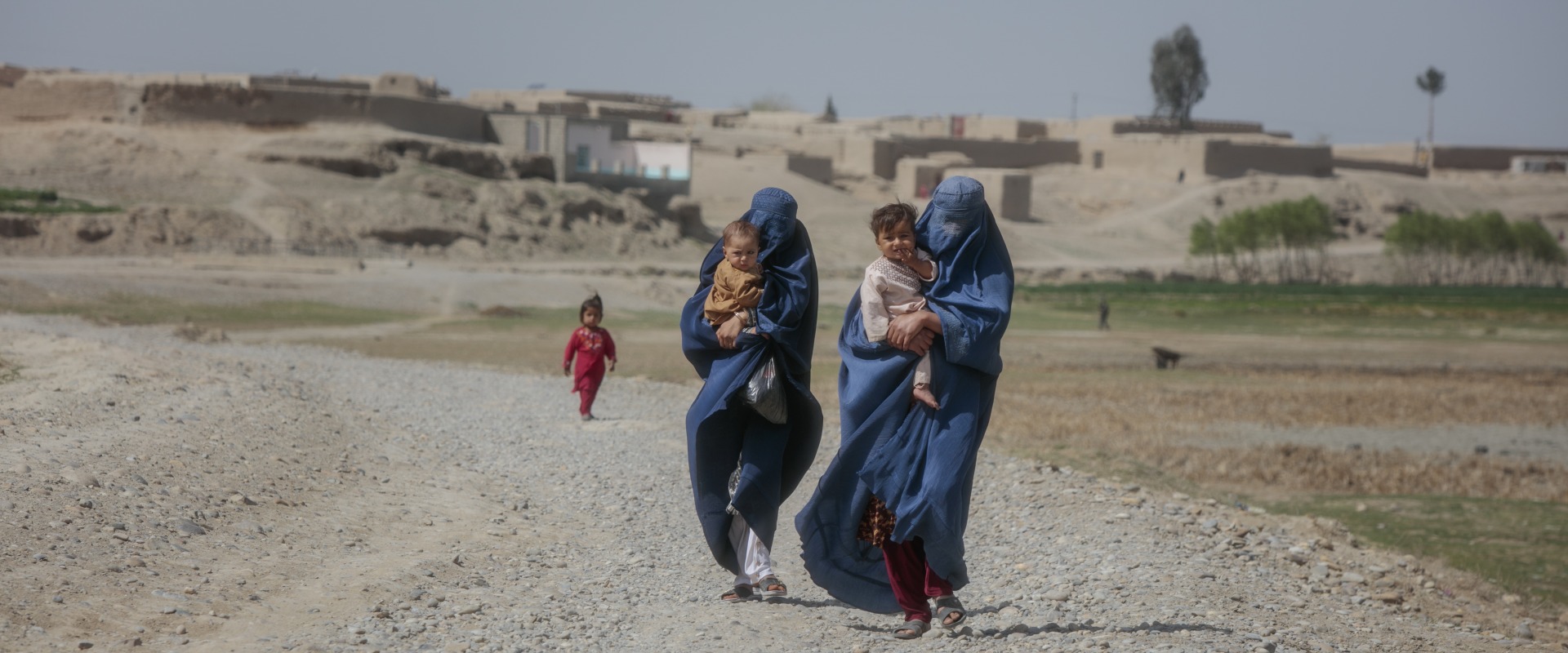
Afghan women have long been deeply involved in the hard work of rebuilding their country, improving their communities, and helping create brighter futures for their families. Since the Taliban took power in August 2021, Afghan women have been increasingly excluded from the public sphere and society.
First, secondary education was banned for women on March 23, 2022. Next, on December 20, authorities declared that women faculty and students could no longer access universities. A few days later, on December 24, a new ban targeted Afghan women working for non-governmental organizations. The Afghan Ministry of Health did make one exception to their ban and, for now, allows women to continue to work in medical facilities.
Afghan women humanitarian workers can no longer go to their offices or out to communities that desperately need assistance. This ban is a blatant violation of their social and economic rights. It also jeopardizes their ability to earn money, which is often the only income source for their families.
In a country where 20 million people face acute hunger and six million are one step away from famine, the continued impact of bans on women in society and in the economy will be dramatic.
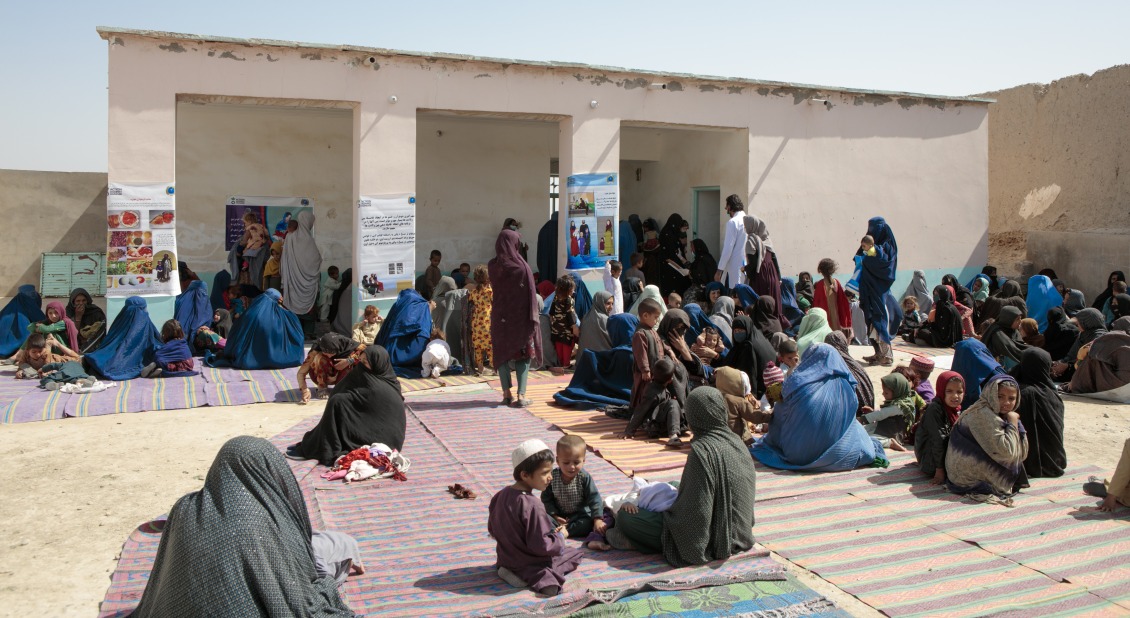
For humanitarian organizations, when women workers aren’t allowed to do their jobs, it severely hinders our ability to carry out lifesaving activities and to continue to provide safe and high-quality services to women in need. For example, in the communities where we work, female health workers are essential for the examination and care of pregnant women.
Action Against Hunger employs more than 450 people in Afghanistan, 34% of whom are women. They are doctors, nurses, engineers, psychologists, and leaders in the fight against hunger. We continue to pay salaries for our women workers who are no longer allowed to do their jobs.
Below, hear from women on our team in Afghanistan who face daily restrictions, who continue to fight against injustice and hunger, and who remind us that – despite everything – hope is always possible.
A child’s first day school is a milestone that opens their eyes to an unknown world of possibilities. K.T., now a psychologist with Action Against Hunger, remembers her first day of school well.
“I was so excited to go to school. I remember the moment when the teacher came into the classroom; she was a nice woman that I will never forget,” she says. K.T. still has a photograph of her first teacher to remember those special days. “She embraced all the students regardless of their ethnicity. I was an Afghan immigrant in Iran, a foreign country, but I felt very comfortable there.”
Poverty and geography play a huge role in determining a girl’s education in Afghanistan. Sometimes, there are no schools that teach girls nearby and most families cannot afford to send them farther away to learn. This was the case for humanitarian worker, K.J., when she was a child, but she was able to study when she was older and her family moved to Iran.
“School was a dream for me, so I always studied hard and with enthusiasm.” she says. “I took an exam for the five school years I missed, and then I got permission to join high school and continue my education.”
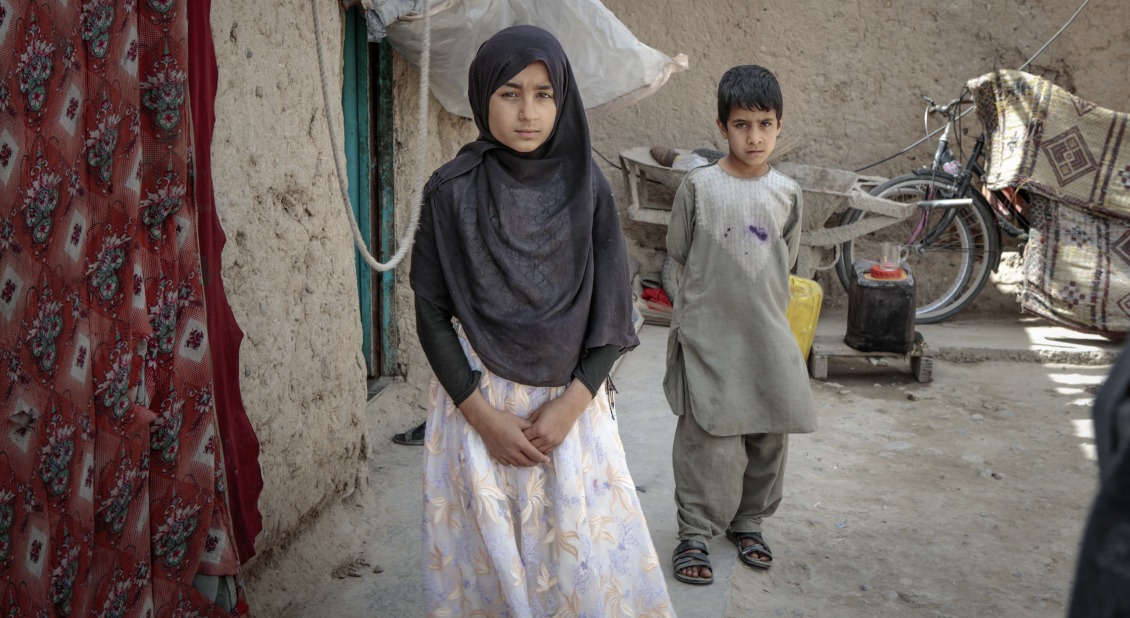
An Action Against Hunger nurse, N., worries for her four-year-old daughter, who is already old enough to see the limits on her future. “She asked me, ‘Mom, can I only go to school until I am six? And after that? Why can my brother go and I can’t?’ Even though I was very sad when I heard her thoughts, I told her to do her best.”
When she is allowed to do her psychology work, K.T. finds inspiration in helping her patients overcome mental health challenges. “When a patient tells me that they see results in themselves and that they are healing [and begin to] regain hope and live life as it is, accepting that life is full of obstacles. They are able to overcome difficulties without hurting others or herself. Their words motivate me and give me hope to continue what I am doing.”
Aid worker H. used to want to be a doctor, but saw the impact that poverty and inequality had on women and girls – she saw them struggle to access education, to afford health care, to be forced to marry early. She switched her career path from medicine to law and now fights daily for women’s rights.
“I work to defend human rights, especially women’s rights to receive an education and I help them as much as I can,” says H. “Unfortunately, as you know, nowadays, women’s rights to work and get an education have been suppressed. This is a big concern for everyone and it has affected us all. I hope that this problem can be solved very soon so that women will have the right to work and get an education again.”
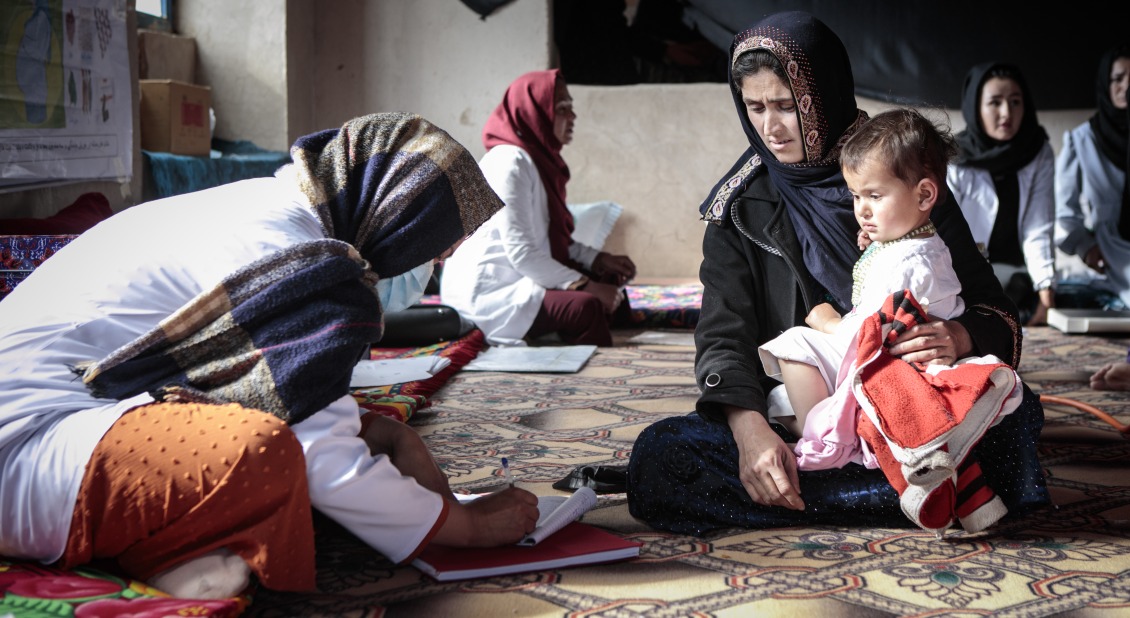
“I hope that one day all women will be able to continue their education and work again,” says R., who used to be able to work in an Action Against Hunger office.
The experiences and journeys of these women are different, but they find a common denominator – the will to move forward despite everything and make something of their dreams. Many of them have interrupted or abandoned their studies for financial, family or political reasons. Nevertheless, they start again, sometimes from scratch, to continue working and to help their communities.
“I know that our people are tired and suffered from the war, I want to do my best to serve them with passion and honesty,” says N. She’s a nurse now, and dreams of becoming a surgeon, but has had to put her ambitions on hold. “They think that we, women, have no abilities. According to this logic, no matter what our dreams are, we can’t achieve them.”
Despite all of this, N. does not let herself be defeated and calls on all women to do the same: “Follow your dreams and work hard to achieve them. Life is about struggle.”
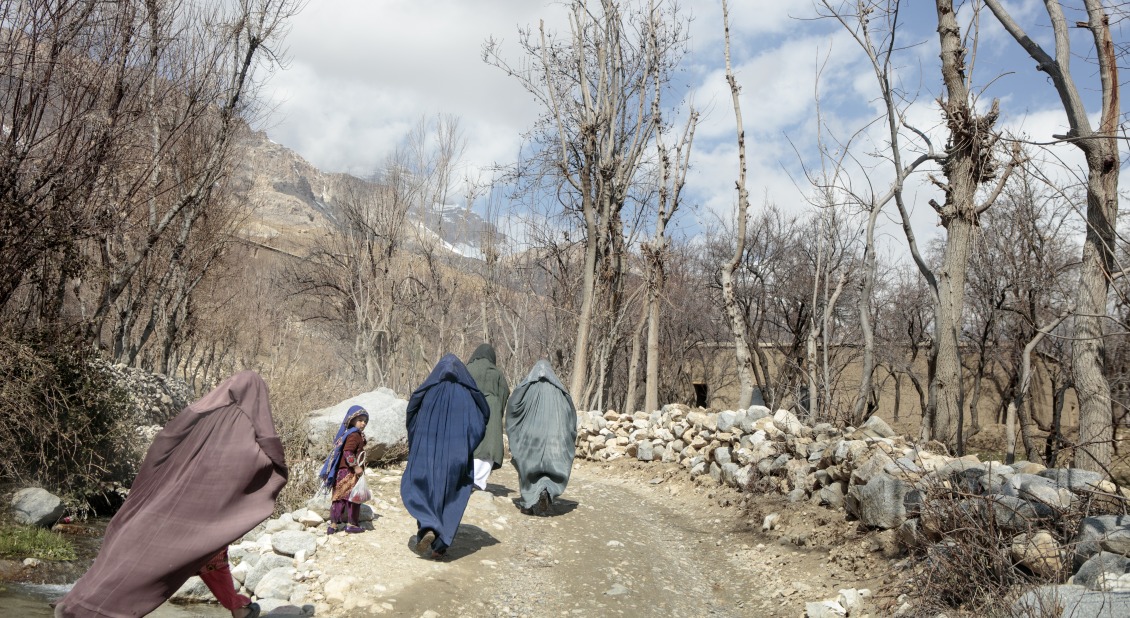
“With all the strength, abilities, and even with the weaknesses we have, we can be useful and build heroes within ourselves,” says K.T. She and K.J. both urge women and girls to find other opportunities to learn and keep their minds engaged, such as through art, online classes or international study.
Gender injustice and gender violence are both causes and consequences of hunger. Women are disproportionately impacted by undernutrition than men. They do not have equal access to resources, education, training, and financing. Despite the inequities, women are often on the frontlines of making change and leading the fight against hunger in their households and communities.
Action Against Hunger is committed to supporting the Afghan people. We want all of our colleagues to return to their jobs, without exception and regardless of function. This is the only way to ensure that all people in need, especially the most vulnerable women and children, have access to lifesaving assistance.
Locally, we are in contact with the authorities to find solutions in the context of the current bans. Globally, we work with the humanitarian community to advocate for political solutions, financial commitments to support growing humanitarian needs, and to ensure that Afghans are not forgotten.
Human rights and access to basic services, resources, and opportunities should be equally available to all people, no matter their gender identity.
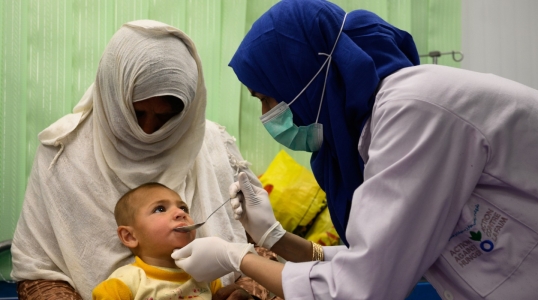
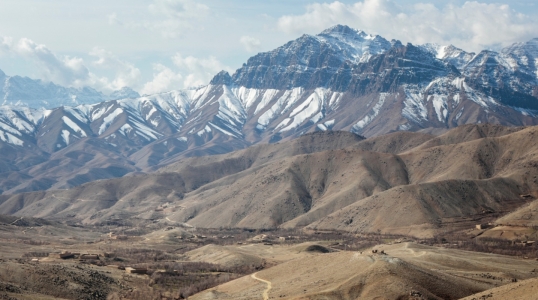

Join our community of supporters passionate about ending world hunger.